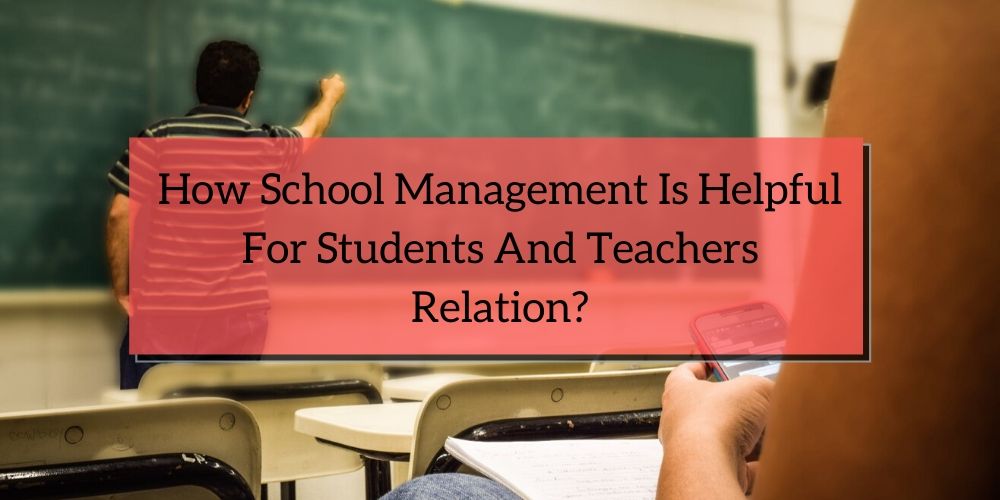
Managing a school with all its departments and their different needs whilst striving for noble goals stated in the school mission is surely a great challenge for any school management. In order to create a quality culture, all the participants of this system must work together, give their contribution and take ownership of the quality enhancement.
In addition to the efforts put into improving the quality of the teaching process and the relationship between students and teachers, using high technology tools can help in supporting the academic and administrative processes within the school and make it easier to achieve the goals.
Everyone has a role!!
All the participants of the educational process – the teaching staff, students and managers – are responsible for the quality developments but they all have different roles.
Students are responsible for their regular attendance, active participation in learning activities and evaluations, student organisations, forums and committees. The teaching staff needs to be familiar with all the system procedures, curriculums and be prepared to propose improvements in any aspects they see the need and the school management has a responsibility for ensuring that quality development is integrated into all aspects of school operations.
1. Importance of teacher-student relationship
Education analysts have recognised a long time ago that a critical ingredient for students’ successful learning is their relationship with teachers. As students spend around 1000 hours per year with their teachers, there’s a lot of opportunities for teachers to develop and leverage strong relationships. There’s plenty of time to ignite the students’ passion for lifelong learning, spark their curiosity and get them socially engaged.
Basic goals of any teacher are to instruct students, connect with them on a deeper level, show understanding and respect of their culture and affirm their worthiness to get the best education possible. Strong teacher-student relationships are associated in both short and long-term improvement goals – higher academic engagement, grades, attendance and fewer disruptive incidents and lower dropout rates.
Also Read: Different levels of management
2. Improving the teacher-student relationship
One ingredient that always adds to the quality of a teacher-student relationship is empathy. Many studies show that teachers who are empathetic towards and with their students are more capable of managing their behaviour and academic engagement.
What is also necessary is to make an effort to understand the differences that exist in students’ perceptions and class expectations since the evidence shows that cultural differences between students and teachers can lead to misunderstandings especially around styles, languages and norms. This is why it’s necessary to teach and model perspective taking for students in classes.
Another thing that can greatly help in improving relations for teachers themselves is modern digital technologies as they can greatly upgrade teachers’ operational efficiency. Using a cloud-based educational software for teachers allows better student learning evaluation and helps differentiate teaching to address different student needs, individualise and manage student learning plans to improve performance, monitor student progress, allow access to data anytime on any device and saves precious time.
3. Quality SBM system
A well-functioning SBM (school-based management) system is an essential ingredient for improving a school’s learning environment and this is something that good school leaders with a great vision can offer. Having an effective SBM with clear directions regarding teacher development, students and materials and finance allocation can have a strong and positive impact on the commitment and motivation of both students and teachers. Such a system would successfully facilitate school leadership by catering to the unique context and needs of the school community, establishing effective and fair teacher appraisal systems, developing and implementing school improvement plans, building partnerships with the community and making sure there is support for the function of all school departments and personnel.
School managers who are prepared and skilled to use their extensive knowledge to solve complex school-based issues can positively contribute to school effectiveness and build trust by establishing working relationships with teachers, students, parents and the community. With strong instructional leadership, school managers can focus on planning, coordination, evaluation and improvement to get a more positive student learning results.
Managing a school is a complex process but what lies at its core is the teaching process and the relationship between the teachers and students. When there’s a well-organised and coordinated system of all the structural elements, then the teaching process flows unhindered and the teacher-student relationships can thrive.
- Understand AI & Top AI tools for students - March 22, 2024
- Important Tips to Crack MBA Entrance Exams - September 10, 2023
- Top Scholarships for MBA Students in India & USA - December 30, 2022
